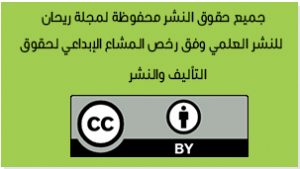مکانة الإمامة ومسؤلیتها
Imamate, Imam, and the followers in the Islamic faith is a topic of great significance, with the teaching of the Prophet Muhammad (peace be upon him).
The fact that imamate is a means of communication between the imam and the follower in prayer makes imamate a high and noble rank in religion, Imamate holds great significance in Islam, with its roots in the teachings of Prophet Muhammad (peace be upon him).
From this aspect, the Prophet Muhammad, peace be upon him, emphasizing its importance from the very beginning of Islam, to the subject of imamate than anything else, the concept of Imamate has been given immense importance starting from the migration of the Prophet himself and continuing throughout his life until he died and met his Lord. Even when he fell ill or embarked on a journey, the importance of Imamate remained paramount and he would delegate someone else to lead the prayer in his place, which demonstrates that human society is prone to neglecting the mention of Allah, indulging in worldly desires or lustful desire and straying from the path of righteousness can lead to spiritual illness. The Imamate addresses these ailments and provides remedies. And also the wisdom and philosophy of the obligation of the congregation in prayer, not just individually but collectively only congregation, so that individual prayer is allowed only
Based on some excuses and necessity. However, the fact that the rank of imamate is very high and noble heightened its responsibilities, which must be discharged by the conditions that have been set for the validity of imamate, such as being male, just (doing good and avoiding evil), wise (rational), and adherence to correct recitation or memorization and preservation of the Quran. Likewise, the imam must possess the characteristics and qualities of imamate, such as scientific, practical, and leadership (guidance) characteristics and qualities, that distinguish him from the common people and scholars. It is important to understand that the responsibilities of an imamate entail varying levels of intellectual, the quality and weakness of knowledge, and the rulings and actions of an Imamate may differ in terms of the practical actions of the imam, such as a righteous person, a sinful person or sinners, and a person who is hidden (not known for his actions).
Keywords: Imamat, Responsibility, Conditions, Rank,Position, Specifications.
Saeedur Rahman EHSAS, Assistant Professor, Faculty member and professor of Islamic Culture at the Department of Islamic Culture, Faculty of Engineering (Construction) Polytechnic University, Kabul – AFGHANISTAN
 مجلة ريحان للنشر العلمي مجلة علمية، محكمة، شهرية، مفتوحة الوصول
مجلة ريحان للنشر العلمي مجلة علمية، محكمة، شهرية، مفتوحة الوصول
